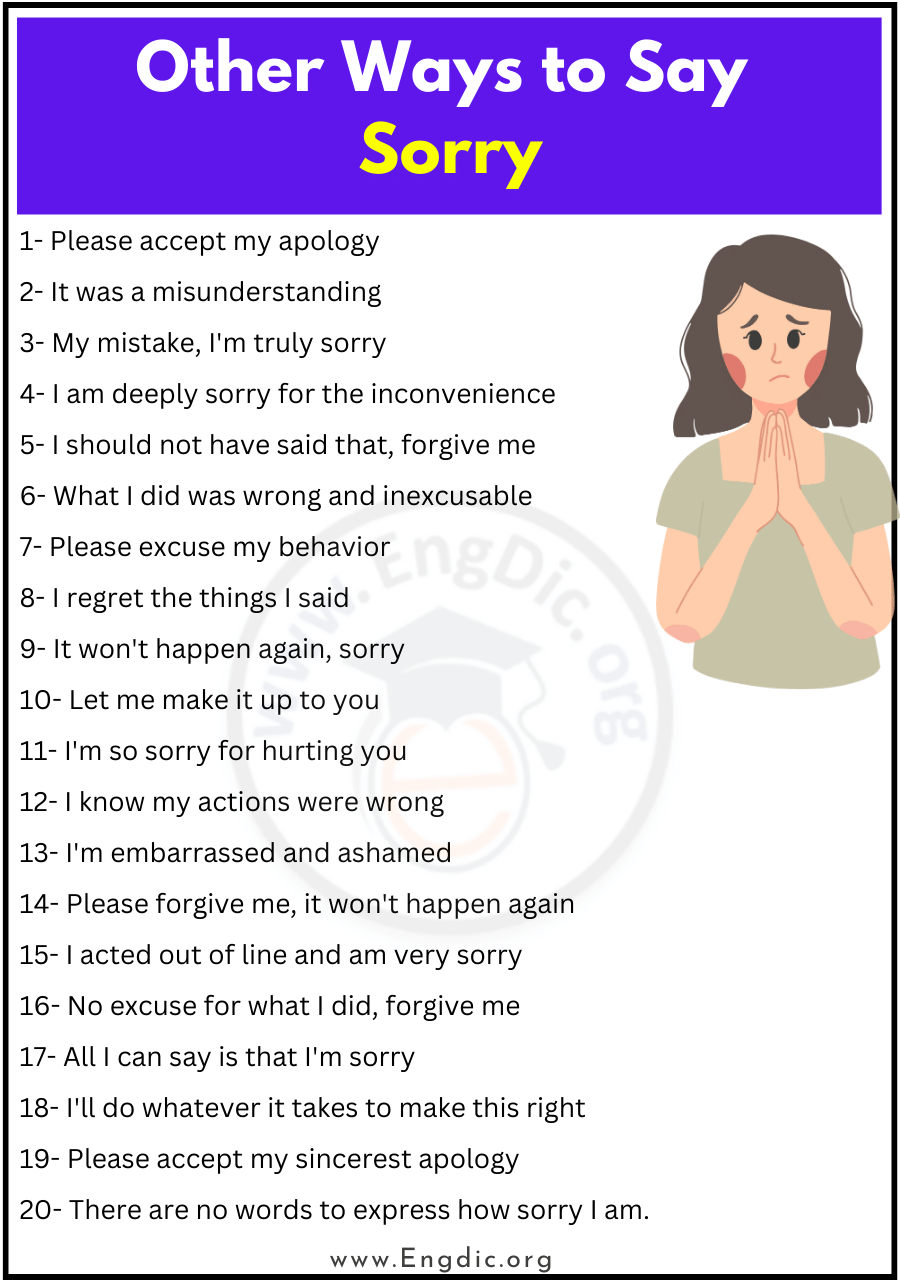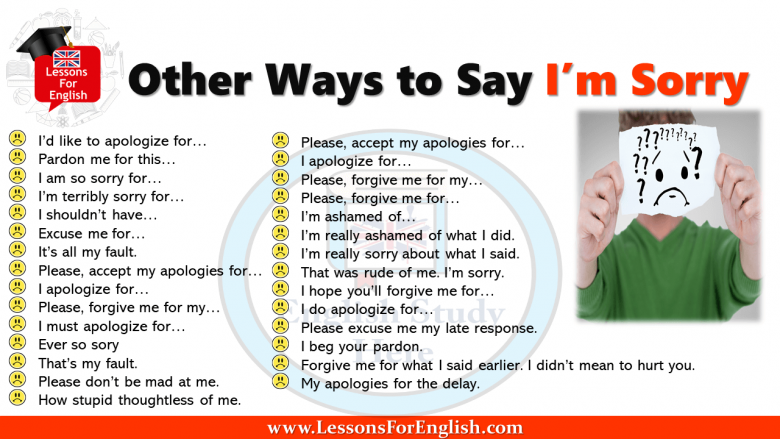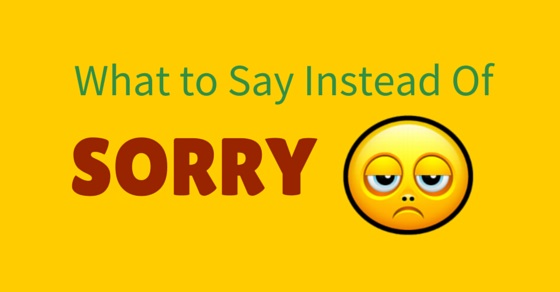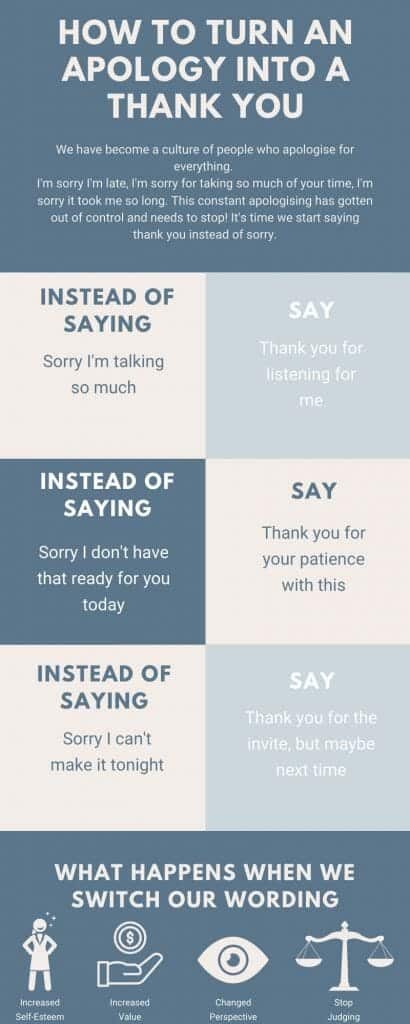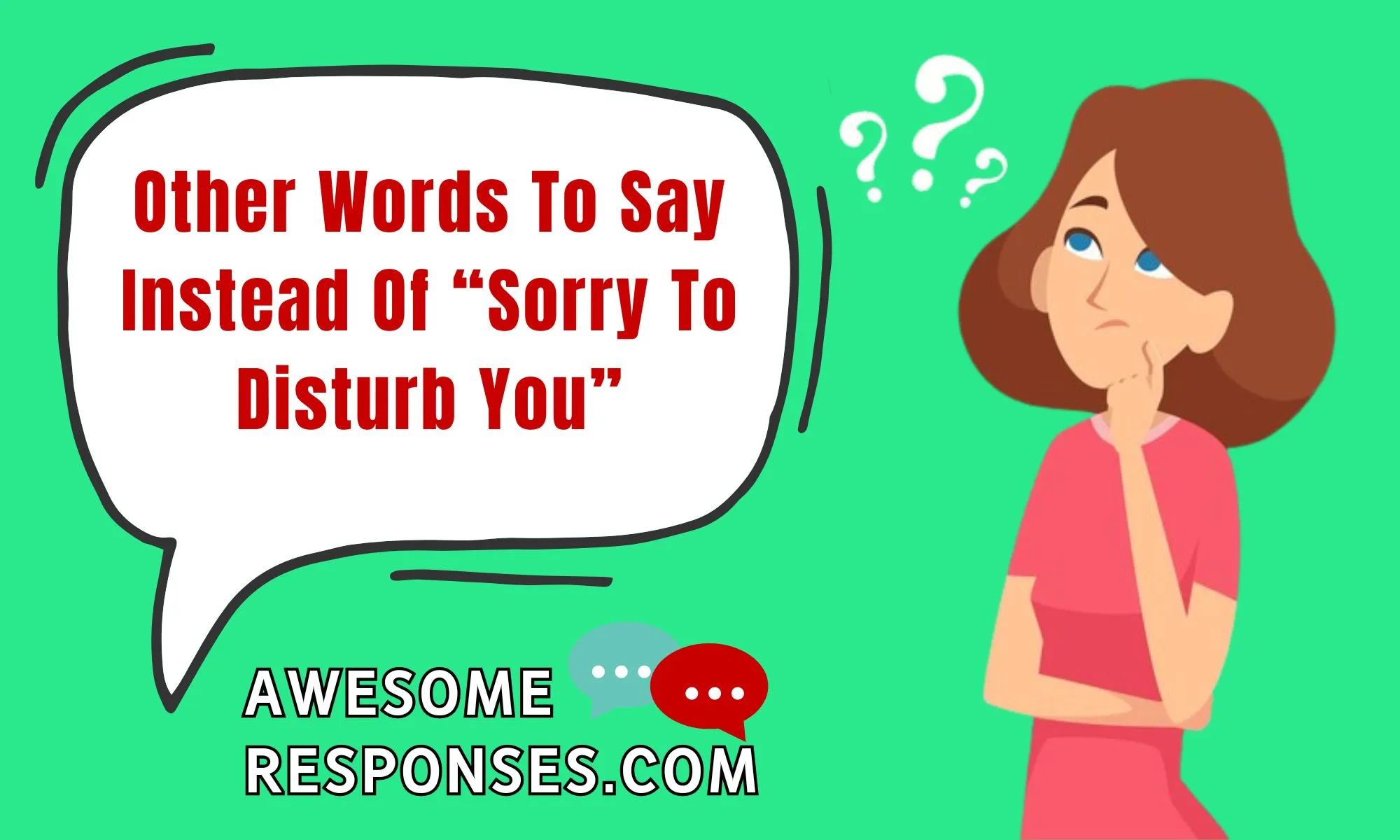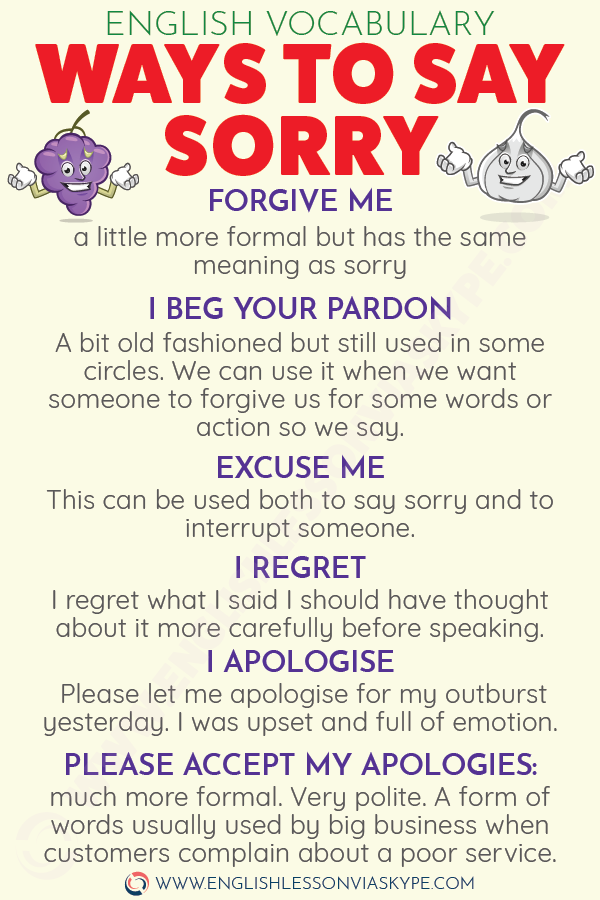Other Words To Use Instead Of Sorry
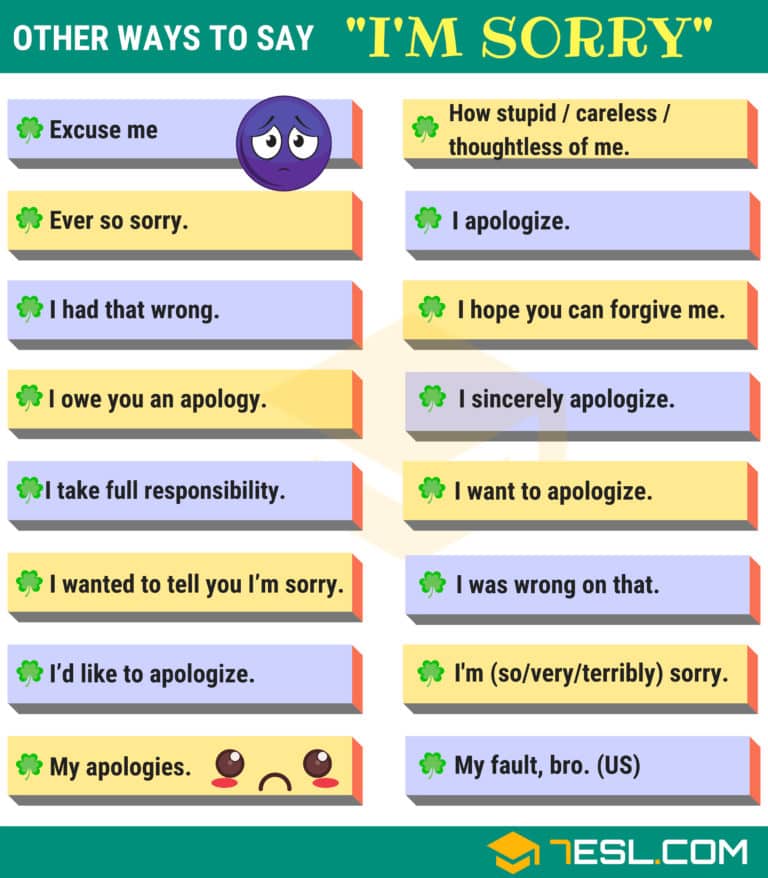
In a world increasingly attuned to the nuances of language, individuals and organizations are re-evaluating the pervasive use of the word "sorry." While often employed as a reflex response, its overuse can dilute its meaning and diminish the impact of genuine remorse. Alternatives are being explored to convey empathy, acknowledge mistakes, and foster more effective communication.
This shift in linguistic awareness aims to promote more precise and impactful language in various contexts, from personal interactions to professional settings. The goal is to replace generic apologies with expressions that demonstrate a deeper understanding of the situation and a commitment to positive change.
The Problem with Over-Apologizing
The tendency to over-apologize, particularly among women and marginalized groups, has been widely documented. It stems from societal pressures to be agreeable and avoid conflict, often leading to unnecessary self-deprecation.
Research suggests that constant apologies can undermine one's authority and perceived competence. In a professional environment, it can diminish the impact of your words and actions. Instead, clear, concise communication that takes responsibility without excessive apologizing is often more effective.
Alternatives to "Sorry"
Several alternatives to "sorry" offer more nuanced ways to respond to different situations. These options range from acknowledging impact to expressing gratitude and offering solutions.
Acknowledging the Impact
When you've caused inconvenience or upset, directly acknowledging the impact of your actions can be more impactful than a simple "sorry." For example, instead of saying "I'm sorry I'm late," consider saying "I understand that my lateness caused a delay to the meeting, and I'll make sure to be on time in the future."
This approach demonstrates awareness and consideration for others.
Expressing Empathy
In situations where you haven't personally caused harm but want to offer support, expressing empathy can be more appropriate than apologizing. Phrases like "That sounds really difficult" or "I can see how that would be frustrating" show genuine concern without taking unnecessary blame.
Empathy focuses on understanding and validating the other person's feelings.
Taking Responsibility and Offering Solutions
When you've made a mistake, taking direct responsibility and outlining steps to rectify the situation demonstrates accountability. Instead of saying "I'm sorry I messed up the report," try "I made an error in the report, and I'm already working to correct it. I'll have a revised version to you by the end of the day."
This approach shows a commitment to resolving the issue and preventing future errors.
Expressing Gratitude
In some cases, expressing gratitude can be a more positive and effective response than apologizing. For example, instead of saying "I'm sorry for being so needy," you might say "Thank you for your patience and understanding."
This shifts the focus from your perceived shortcomings to the other person's kindness.
The Impact on Society and Communication
The movement towards more intentional language has significant implications for society and communication. It encourages individuals to be more mindful of their words and the impact they have on others. Promoting respectful and empathetic communication can strengthen relationships, foster more productive workplaces, and create a more inclusive and understanding society.
Organizations are increasingly incorporating language training into their diversity and inclusion initiatives. This helps employees understand the power of their words and how to communicate effectively across cultures and backgrounds.
Ultimately, the shift away from over-apologizing is about fostering more genuine and meaningful communication. By choosing our words carefully, we can express ourselves more accurately, build stronger relationships, and create a more positive and respectful world.





